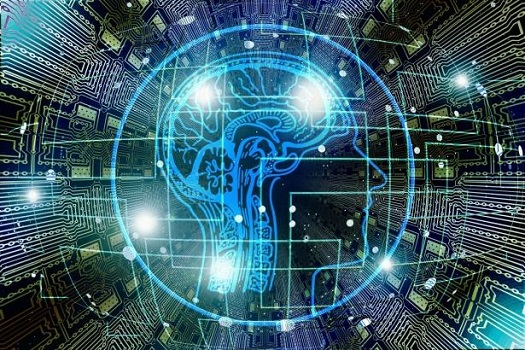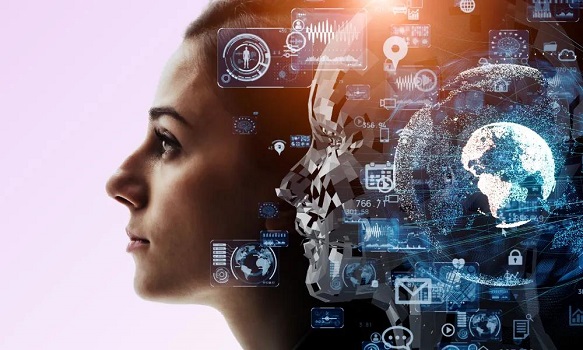AI marketing automation is the use of artificial intelligence and machine learning algorithms to automate and optimize marketing activities. This technology has the potential to revolutionize the way we approach marketing, making it more efficient, more personalized, and ultimately more effective.

History of AI
The history of AI in marketing automation can be traced back to the early 2000s when businesses started exploring the use of data-driven technologies to improve their marketing efforts. At that time, AI was primarily used for predictive analytics, such as identifying the likelihood of a customer making a purchase or predicting churn rates.
However, it wasn’t until the mid-2010s that AI really started to become an integral tool for marketing automation. This was due in part to the increase in data availability, the rise of cloud computing, and the development of more advanced machine learning algorithms.
In 2011, IBM’s Watson, an AI system that could answer natural language questions, competed and won on the game show Jeopardy! This achievement brought AI into the mainstream and sparked interest in its potential applications in marketing automation.
Since then, AI has been used for a variety of marketing automation tasks, including lead scoring, content personalization, email marketing, and predictive customer behavior analysis. AI has also been used to automate routine marketing tasks, such as ad buying and social media posting, freeing up marketing teams to focus on more strategic efforts.
Today, AI is a critical component of many marketing automation platforms, helping businesses to gain insights into customer behavior, create personalized experiences, and improve their overall marketing effectiveness.
What is AI?
AI, or artificial intelligence, refers to the development of computer systems that can perform tasks that would typically require human intelligence, such as perception, reasoning, learning, and decision-making. AI systems are designed to learn from data, recognize patterns, and make predictions or decisions based on that information.
AI can be divided into two main categories:
- Narrow or Weak AI: Refers to AI systems that are designed to perform a specific task or set of tasks, such as image recognition, natural language processing, or speech recognition. These systems are typically trained on a specific dataset and can only perform the task for which they were designed.
- General or Strong AI: Refers to AI systems that can perform any intellectual task that a human can. These systems are capable of learning and adapting to new situations, making decisions, and reasoning about complex problems. However, true general AI does not yet exist, and current AI systems are still limited to specific tasks.
AI is an interdisciplinary field that draws on a variety of disciplines, including computer science, mathematics, psychology, neuroscience, and philosophy. It has a wide range of applications in industries such as healthcare, finance, transportation, and marketing, among others.

Using AI in Marketing
AI is being increasingly used in marketing to improve the efficiency and effectiveness of various marketing activities. Here are some ways in which AI is being used in marketing:
- Personalization: AI algorithms can analyze customer data to provide personalized recommendations and experiences. This can include personalized product recommendations, tailored content, and personalized email marketing campaigns.
- Chatbots: AI-powered chatbots are being used to provide customer support and assistance, allowing businesses to offer 24/7 support without having to hire additional staff.
- Predictive Analytics: AI algorithms can analyze customer data to predict future behaviors, such as purchase likelihood or customer churn. This information can be used to inform
- marketing strategies and optimize campaigns.
- Advertising: AI is being used to optimize ad targeting and placement. Algorithms can analyze user data to identify the most effective ad placement and messaging.
- Content Creation: AI algorithms are being used to generate content, such as product descriptions, social media posts, and even news articles. This can help businesses to produce large amounts of content quickly and efficiently.
- Sales and Lead Generation: AI algorithms can analyze customer data to identify potential sales leads and predict their likelihood of making a purchase. This information can be used to target leads with personalized marketing messages and increase the efficiency of sales teams.
Overall, AI has the potential to revolutionize the way businesses approach marketing by allowing them to personalize customer experiences, optimize campaigns, and generate more accurate insights into customer behavior.
Benefit of AI in marketing
There are many benefits of using AI in marketing, including:
- Improved Personalization: AI algorithms can analyze large amounts of customer data to create highly personalized experiences, such as tailored product recommendations and personalized marketing messages. This can increase customer engagement and improve conversion rates.
- Increased Efficiency: AI can automate routine marketing tasks, such as email marketing campaigns and ad targeting, allowing marketing teams to focus on more strategic activities. This can increase efficiency and productivity.
- Better Targeting: AI algorithms can analyze customer data to identify the most effective ad placement and messaging. This can help businesses to target the right audience and optimize their marketing spend.
- Enhanced Customer Insights: AI algorithms can analyze large amounts of customer data to identify patterns and trends. This can provide businesses with more accurate insights into customer behavior, preferences, and needs.
- Predictive Analytics: AI algorithms can predict future customer behavior, such as purchase likelihood and customer churn. This can help businesses to anticipate customer needs and optimize their marketing strategies.
- Improved Customer Service: AI-powered chatbots can provide 24/7 customer support and assistance, improving the customer experience and reducing response times.

Overall, AI can help businesses to improve their marketing effectiveness, increase efficiency, and gain a deeper understanding of their customers.
Best AI tools for marketing
AI technology has the potential to revolutionize the way we approach marketing, making it more efficient, more personalized, and ultimately more effective.
Some of the applications of AI in marketing automation include personalization of marketing campaigns using AI by analyzing data on individual customers. AI algorithms can make automated lead scoring and nurturing, predictive analytics for customer behavior, and dynamic pricing.
There are several AI marketing automation tools available in the market. Some of the best AI marketing automation tools include Convertkit, HubSpot Marketing Automation, Keap, Moosend, ClickFunnels, SEMrush, and Ontraport.
Features to look for in an AI tool for marketing
- Email marketing – to personalize your email campaigns and optimize your send times, subject lines, and content.
- Social media marketing – to create engaging and on-brand social media content, monitor your brand reputation, and automate your interactions with your followers.
- Content optimization: to improve your SEO ranking and user engagement by analyzing your content and suggesting keywords, headlines, meta descriptions.
- Content creation: to generate high-quality content for your website, blog, social media, email, or ads.
- Data analysis – to measure your marketing performance and gain insights into your customers’ behavior, preferences, and needs.
You might also like to read our comparison of the top Marketing Automation platforms:
Leave a Reply